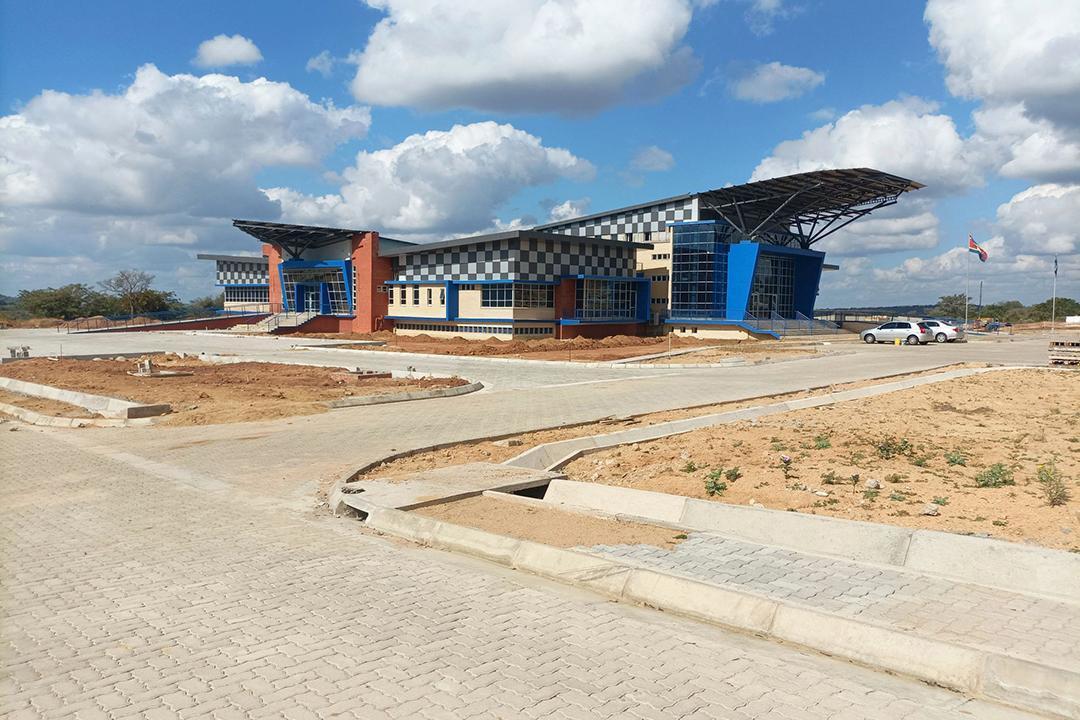Africa-Press – Eswatini. The Government of Eswatini continues to make significant investments in national infrastructure, with major capital projects underway across the country—despite financial challenges, delayed payments, and prolonged procurement processes.
According to the Buildings Department of the Ministry of Public Works and Transport, three major initiatives are nearing completion: the construction of the Buhleni Police Station, the rehabilitation of the Malkerns Research Station, and the revitalisation of the National Handicraft Training Centre.
E193 Million Spent on Buhleni Police Station
The most substantial project—the Buhleni Police Station—was initially contracted at E165.9 million, but due to revisions and final account settlements, the total cost has since risen to E193.4 million. The project has been successfully completed and is now occupied by the client ministry.
This state-of-the-art facility is expected to enhance policing capacity in the northern Hhohho region and improve safety and service delivery for local communities.
Malkerns Research Station Nearing Completion
At the Malkerns Research Station, a scaled-down rehabilitation project is progressing under a budget of E5.3 million, focused specifically on refurbishing the administration block. The scope includes a new roof structure, ceiling works, electrical and data systems, and internal finishes.
Currently 83% complete, outstanding works include plumbing, sewer connections, electrical finishing, and external painting. Despite lacking current donor funding, the Ministry of Agriculture has requested the handover of completed portions of the facility to support ongoing operations.
Handicraft Training Centre Gets a Major Facelift
The multi-phase rehabilitation of the National Handicraft Training Centre is also well advanced. The initiative is revitalising one of the country’s key cultural and vocational training hubs.
Phase I and II, covering the Exhibition Hall, Leather Craft, Woodwork, Visual Arts, Metalwork, Pottery, and Computer Workshops, have been completed and handed over, with only minor snags being resolved.
Phase III, budgeted at E4.3 million, includes the final upgrades to the Metalwork and Plumbing Workshops, the Sewing Classroom, walkways, and major external landscaping. Progress currently stands at 90%, with handover expected once the final account and snag list are concluded.
Financial Delays Hampering Progress
Despite visible progress, the Buildings Department highlighted critical challenges affecting all projects. Chief among them is the delayed payment of certificates to contractors and service providers. As a result, many projects have faced slowdowns, with some experiencing time extensions and cost escalations due to the government’s complex funding and procurement model.
“The prolonged construction periods are not only costing government more in the long run, but are also undermining the pace of delivery,” an official stated.
Looking Ahead
While frustrations over funding inefficiencies persist, these capital projects represent a vital investment in Eswatini’s national infrastructure, economic resilience, and skills development. The completed facilities are expected to serve the public for years to come—supporting policing, research, and vocational training across multiple sectors.
As the Buildings Department moves to finalise all project accounts, the public eagerly awaits the full handover of these facilities, marking yet another step forward in national development.
For More News And Analysis About Eswatini Follow Africa-Press







